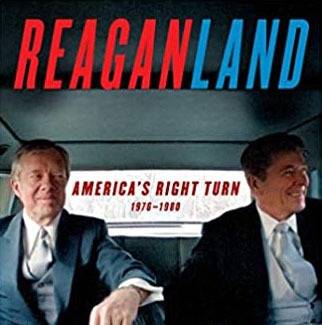This article is a preview from the Autumn 2015 edition of New Humanist. You can find out more and subscribe here.
Deep Lane (W. W. Norton and Company) by Mark Doty
Deep Lane, Mark Doty’s first collection for seven years, is a triumphal kind of homecoming. Most of its poems are set down the “deep lane” of the title, somewhere near Amagansett on Long Island. Doty has moved his home here, to a “shingled cottage /blue-shuttered, where the lilacs rustle and swell in the warm dark, //and what are those birds /who won’t be still after midnight?”
In another writer, this biographical fact − even the extent to which it impinges on his imagination and his work − would be merely incidental. Doty, though, is the living poet who has arguably done most to find a way of writing about gay urban life in the late twentieth and early twenty-first centuries.
He is not by any stretch of the imagination the only important gay poet to emerge in urban North America: one has only to think of Allen Ginsberg, or parts of Alice Walker’s life and work, to see how various, and how already historic, that movement is.
But like the British poet Thom Gunn, who emigrated to California in the ’50s, Doty writes within the lyric tradition. Instead of relying on novelty or shock, borrowing from street language or bald hyperbole, he takes part in the far older poetic tradition that searches for pattern and meaning, in human life and among its own words:
Praise to the cherry on the lawn of the library,
the heave and contorted thrust of it, a master,
on its own root, negating the word weeping
Real-life crises demonstrate over and over how such pattern and meaning are essential, in both senses of the word, to poetry. The two most moving and significant volumes about AIDS in North America are undoubtedly Thom Gunn’s The Man with Night Sweats (1992), and Mark Doty’s much-celebrated third collection, My Alexandria (1993), written after his partner had been diagnosed.
All of which goes some way to explaining why Doty’s new book, about a life in the country, is so interesting. Deep Lane is neither the sepia nostalgia of pastoral − the book is concerned with making a life now − nor some hippie retreat from the shared, public sphere.
It doesn’t have the purity and single-mindedness of ecological rhetoric; nor of the kind of domestic homilies that used to be stitched into samplers. Instead, Doty has found another way of writing about place, in this astonishing “portrait of the artist” as a man putting down roots, and lifting others:
When I’m down on my knees pulling up wild mustard
by the roots before it sets seed, hauling old ferns
further into the shade…
In fact, writing about making a place for oneself in the landscape is itself a North American tradition. Surprised by this – in the gardener-poet Stanley Kunitz, or poet-couple Donald Hall and Jane Kenyon, who revivified Hall’s family farmhouse, for example − we British readers have to remind ourselves that it has been a founding trope in the continent’s literature since Walt Whitman’s Leaves of Grass was first published in 1855, and Henry David Thoreau’s Walden in 1854. In this tradition, the place the self makes for itself is also a mirror of that self.
So, “to whom could this poem pray?” as Doty asks in “Crystal”, a poem about injecting crystal meth. The nuance, the profundity and the beauty of his book are all in the particular sensibility and experiences he brings to the genre.
One of Deep Lane’s central poems, “King of Fire Island”, juxtaposes the men who “stand with cocktails //in the thick of buzzing bodies, intent /in quick talk, though their subtle eyes //won’t miss a trick” with a young stag tamed by his deformed leg:
They startled me at first, those sucking lips
around my fingertips, careful,as if he were grooming another
of his kind.
The unmistakable sexual analogy is both subtle and matter of fact. In one of the book’s nine poems titled “Deep Lane”, desire, drugs and a complex image of the beloved as a benign “ferryman” suggest that home is, if not death, at least a happy dream:
…the kind man’s dark leather back
in front of you, the cycle’s centre of gravitysinking lower, the delicious clay-cold of the field
between here and home rising up, scent of hay,
of animals and ruin.
It’s a celebration of surrender − a kind of voluntary swoon − and this book is cross-hatched by the push and pull of release and action, planting and natural decay.
Is Deep Lane, then, as well as everything else, a mid-life work? If so, let’s hope that there will be at least as many books to come from Mark Doty as there have been already.

